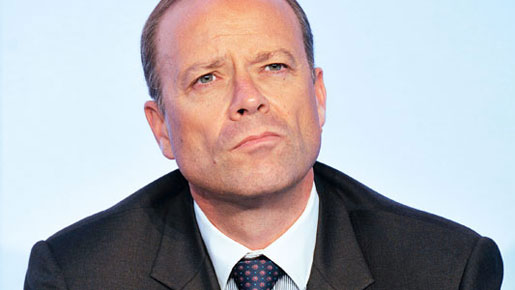
European takeovers of American companies are rare of late. As a wave of buy-outs of European companies by deep-pocketed American investors over the last couple of decades attests, it’s usually been the other way around. That’s especially true of big pharmaceuticals where groaning war chests are essential for the long-term development of patent drugs.
But the pattern of history doesn’t seem to phase Christopher Viehbacher, tri-lingual chief executive of pharmaceutical giant Sanofi-Aventis, who launched in October a US$18.5bn bid for Boston, Masschusetts-based Genzyme, a specialist in treatments for rare and genetic diseases. The bid is considered audacious, if only in the US where the industry isn’t used to French firms making big-ticket offers for made-in-America businesses of this calibre.
And even more so because Sanofi-Aventis boasts the kind of money that used to be the prerogative of buyers from the other side of the Atlantic. The firm has organised a consortium of banks but says it hardly needs them.
But then Viehbacher is different. For a start, he’s not French. Of German-Canadian origin, he’s a veteran of the pharma industry who has worked on both sides of the Atlantic and can talk “the language of business”, as the Francophone business press puts it, just about anywhere and certainly in France. He brushed up his French while running a subsidiary of GlaxoSmithKline there and, most unusually, picking up the Legion d’Honneur, a state honour normally reserved for native-born captains of industry.
Just as importantly, 50 year-old Viehbacher [pronounced ‘Feebucker’] is something of a maestro of deal-making.
Having taken over the helm of Sanofi-Aventis barely 18 years ago after being head-hunted from GlaxoSmithKline, he has presided over no less than 50 of them as he positions Sanofi-Aventis for what analysts see as a somewhat fraught future for big pharma. Most of those acquisitions brought into the fold small to medium-sized companies, licence agreements and partnerships deals right across the spectrum including public health, privately funded research, veterinary medicine and generics.
All of them, say commentators, reveal a similar strategy. First, Viehbacher enters negotiations with a firm value in mind and, say subordinates, he doesn’t exceed it. Second, he likes to reach agreement without rancour, using what one commentator describes as “gentle medicine”. True to form, he has explained that Sanofi-Aventis, which is after all the world’s fourth-largest pharma, has the kind of manufacturing expertise which has proved a problem in the past for Genzyme with its complex drugs.
But this time the medicine is turning bitter. With Genzyme, Viehbacher has run into a brick wall. His opposite number, Henri Termeer has flatly rejected the offer as “inappropriate and opportunist” and one that “enormously undervalues” the firm he’s led for years. (It’s pitched at $69 a share – a 39 percent premium on the price before rumours of a buy-out began to circulate).
Termeer has also launched a propaganda war, claiming that in the two chief executives’ only conversation, which took place in Boston a few weeks ago, Viehbacher canvassed the possibility of hiking the offer to US$80 a share. Since then, Termeer in common with his board of directors has flatly refused any further communication with the French interloper. For his part, the boss of Sanofi-Aventis denies that he’s willing to go to US$80, which most analysts consider a stratospheric figure that would push the overall price to $21bn. However, he’s “not astounded” at his target’s stubbornness.
Now that battle has been joined, the $18.5bn question is whether Viehbacher can pull off the victory of his career thus far. He’s given Genzyme a deadline of December 10 to come to the party and American commentators seem to give him an even chance, mainly because they believe the Boston biotech has got nowhere to hide and can’t expect a much higher offer.
“Genzyme has been limping thanks to manufacturing foul-ups that have curtailed sales of its medicines,” notes Forbes journalist Matthew Herper. “So why would Sanofi-Aventis or any other drug-maker want to buy it?”
The answer is that, like other pharma giants, the French firm could fall off a “patent cliff” as its guaranteed earnings run out and an era of officially approved knock-offs in the form of generics is ushered in. This would make much more valuable Genzyme’s admittedly blocked pipeline of pills for dangerously high levels of cholesterol, multiple sclerosis and other genetic disorders.
This is why Mark Schoenebaum, biotechnology analyst at International Stock Research, concludes that Genzyme’s sales will jump 47 percent to US$6.8bn over the next four years. So the Boston firm would be a major prize for the highly acquisitive Christopher Viehbacher.
However Viehbacher has a plan. Pronouncing himself relaxed about Genzyme’s reluctance to play the bride, he’s bypassing the board and wooing outside shareholders. Indeed at mid-October he claimed to have approvals from roughly half of them mainly because, he said, they’re frustrated with their own company’s refusal even to discuss the potential synergies.
According to insiders, France’s empire-builder is motivated as much by a sense of mission as by a desire for higher profits. Although not a chemist by training, he is said to take a special interest in the development of life-saving or life-enhancing drugs. “He’s got humanitarian qualities, a personal interest in cancer and in research in general,” sources told French business paper La Tribune.
Viehbacher still clearly hopes that gentle medicine will prevail. Although his grand plan seemed to be heading for a stand-off, he insisted mid-October: “This isn’t a buy-out. It’s an attempt to establish a dialogue.”
Clearly, the problem for the moment is that it takes two to have a dialogue.

